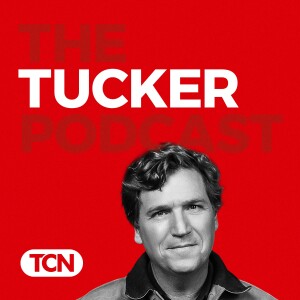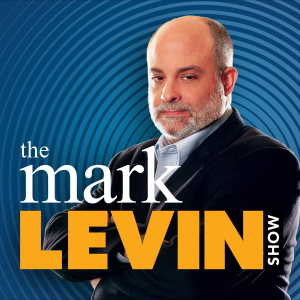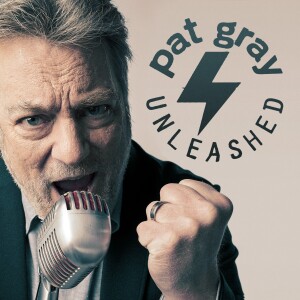

2 1/2 years ago, MSNBC star Rachel Maddow aired an interesting segment comparing the public persona of former Massachusetts governor and presidential candidate Mitt Romney to that of former professional wrestling personality Ted DiBiase. In the 1980s and 1990s, DiBiase wrestled as "The Million Dollar Man," an embodiment of one-percenter wretched excess. The "Million Dollar Man" would boast of living in a different part of the world every season, owning a watch for every day of the week, and having the ability to do whatever he wanted, whenever we wanted, because, according to him, "everybody's got a price."
http://video.msnbc.msn.com/rachel-maddow/46049049
http://youtu.be/H65xYc23cxM
Maddow suggested that Romney's image as the real-life version of Ted DiBiase's "Million Dollar Man" character would prove to be a liability in his quest to become president--and she was right.
Sometimes wealth can indeed be a liability. Most of the time, of course, it's the ultimate asset--especially if you're trying to influence the way things operate in Washington and in America. There is justifiable concern about the role big money plays in politics--but the inconvenient truth is that most of us aren't bothered by money in politics *per se*, just the use of money in politics to achieve nefarious ends.
The recent passing of billionaire Dick Scaife is a case in point. Scaife became notorious for financing a series of bizarre efforts to bring down the Clinton Administration, as well as his financing of organizations that viciously attacked climate science and climate scientists; Michael E. Mann chronicled the role Scaife played in financing and furthering climate-change denial in his acclaimed 2012 book, "The Hockey Stick and the Climate Wars: Dispatches from the Front Lines."
http://www.amazon.com/gp/aw/d/023115254X?pc_redir=1404824713&robot_redir=1
Now, in the interest of full disclosure, one of the organizations that received financing from Scaife, the so-called Committee for a Constructive Tomorrow, also known as CFACT, targeted me for cyber-harassment several years ago when I first started writing about climate change, so I can't exactly say I have an objective view of the late billionaire. Having said that, what a tragedy that Scaife--who was many things, but not a dumb person--failed to use his resources to protect the only planet we have, whether we're rich or poor. What a shame that Scaife used his newspaper, the Pittsburgh, Pennsylvania Tribune-Review, to launch venomous assaults on climate science and climate scientists for years. What a disgrace that a man who lived in such rarefied air didn't recognize the importance of keeping that air clean.
http://www.post-gazette.com/local/2014/07/04/Tribune-Review-publisher-Scaife-dies/stories/201407040150
Just two months before he died, Scaife wrote an interesting op-ed for the Tribune-Review about the power of newspapers. He noted:
"Over the decades, I supported many causes I consider worthwhile. Those include art museums, universities, think-tanks, political campaigns, community redevelopment projects, and countless charities —some local, others national in scope.
"None has given me as great a sense of accomplishment as the newspapers of Trib Total Media.
"I fell in love with newspapers as a boy, when my father brought me editions from around the country and abroad. The day I became a newspaper publisher, buying the Tribune-Review, remains one of the proudest, happiest moments of my life.
"I believed then — as I do now — that newspapers are essential to America, and to any free and prospering nation.
"Even today, when so many kinds of media offer endless information, newspapers are unique and invaluable: They provide the most substantive, trustworthy reporting from the most experienced, reliable writers and editors; they consistently break more of the important stories, investigate more of the critical issues, and expose more of the secrets that we need to know.
"Newspapers, more than any other medium, keep a watchful eye on government at all levels, on business and technology, medicine and science, and other aspects of our lives.
"Much of what you read or hear on blogs and other Internet sites, on TV and radio, originated in a newspaper. Many of those other media are useful — yet none consistently produces the quality and quantity of important news that you find daily in almost any American newspaper.
"The work of my newspapers gives me immense pride. We've exposed public corruption and incompetence, threats to public safety and health; we've interviewed many of the leading political figures of the past decade; we've reported on wars and other events around the world — and we've also reported big and small, tragic and uplifting stories that make up the daily lives of families, neighborhoods and communities across Western Pennsylvania.
"Many of these stories never would have been told, if not for the Trib newspapers.
"That is why, several years ago, I took steps to ensure that my newspapers outlive me. I believe they are essential to our communities and will be my most valuable legacy.
"Newspapering has changed radically since I published my first edition, and I know it will change even more. The decline of some of America's once-great newspapers in recent years has been profound and surprising.
"Yet I hope newspapers remain the strong guardians of our lives, the crucial source of critical information, that they have always been – because the health, security, freedom and well-being of our communities, our nation, and all of us individually, depend on them."
http://triblive.com/news/adminpage/6132589-74/newspapers-lives-media
How sad is it that Scaife used his newspaper to hurl invective at those concerned about the carbon pollution that threatens future generations. Indeed, Scaife's body wasn't even cold before the Tribune-Review ran a profile of yet another aggressive denier of global warming--Fox News Channel personality Joe Bastardi.
http://triblive.com/mobile/6346288-96/global-warming-conference
I don't believe in not speaking ill of the dead. Nobody really does. The fact is that Dick Scaife bears a certain degree of responsibility for putting us on the path to climate chaos. He's not alone in this, of course: Charles Koch, David Koch, Rupert Murdoch, Roger Ailes, Rush Limbaugh and other prominent figures bear a certain degree of responsibility for blocking needed action on climate. Yet I can't help wondering if Scaife had a few regrets right before he died...if he thought about the horror his actions would inflict upon his children and grandchildren...if he said to himself, right before he drew that last breath, "Damn, I made a mess of things!"
Speaking of people who have tried to drive the country back into the Stone Age on science, courtesy of the Dallas Morning News we learn that Chase Koch, the spawn of notorious climate-change denier Charles Koch, is continuing the dark family tradition.
http://www.dallasnews.com/news/politics/state-politics/20140701-money-from-koch-interests-flows-to-governor-candidate-greg-abbott.ece
http://www.msnbc.com/rachel-maddow-show/watch/koch-backed-ag-helps-hide-chemical-dangers-298973251858
http://www.msnbc.com/rachel-maddow-show/watch/border-safety-take-spotlight-in-texas-race-299895875973
Any hopes that the next Koch generation will be different in any material respect from the elders have been dashed. Who knew selfishness was a genetic trait passed down from father to son?
You'd figure that the apparent defeat of his uncle William Koch--who spent obscene amounts of money trying in vain to stop the Cape Wind project--would signal to the younger Koch that it's not a good idea, long-term, to stand in the way of progress. I guess not.
http://blog.ucsusa.org/cape-wind-offshore-wind-power-577
Let us now turn to a member of the one percent who actually believes in supporting progress: Tom Steyer, the billionaire climate activist who played a key role in the election of Massachusetts Senator Ed Markey and Virginia Governor Terry McAuliffe in 2013. Earlier this month, in a story almost as strange as the Koch family, the New York Times tried to paint Steyer as a hypocrite on climate. According to the story, "Steyer, a billionaire former hedge fund manager, emerged this election season as the green-minded answer to Charles and David Koch, the patrons of conservative Republican politics, after vowing that he would sell off his investments in companies that generate fossil fuels like coal.
"But an examination of those investments shows that even after his highly public divestment, the coal-related projects his firm bankrolled will generate tens of millions of tons of carbon pollution for years, if not decades, to come.
"Over the past 15 years, Mr. Steyer’s fund, Farallon Capital Management, has pumped hundreds of millions of dollars into companies that operate coal mines and coal-fired power plants from Indonesia to China, records and interviews show."
The story further noted:
"Mr. Steyer sold his ownership stake in Farallon in late 2012, but he has not cut ties with it entirely. He remains a passive investor, his aides said, though they declined to describe the size of his investment. Employees at Farallon screen out any fossil-fuel-related holdings from his portfolio, and he no longer earns a share of the profits from the fund, the aides said."
The Times also reported:
"Asked why Mr. Steyer had allowed Farallon to pursue such investments in recent years, Heather Wong, a spokeswoman for Mr. Steyer’s political organization, NextGen Climate, said, 'Given how major global funds are structured, they are by definition invested in every sector of the economy, which is why Tom stepped down in 2012.'”
The paper additionally observed:
"In interviews, several prominent environmentalists argued that Mr. Steyer’s unrivaled spending to support climate-change policies outweighed the impact of the carbon pollution unleashed by his past investments.
"'This is precisely what we want people to do: sell investments in fossil fuels and get to work solving the problem of climate change,' said Bill McKibben, a founder of the group 350.org, which pushes financial institutions to divest from fossil fuels.
"Supporters point to the $25 million campaign Mr. Steyer organized four years ago to defeat a California ballot initiative that would have gutted the state’s landmark climate-change law. The law remained in place and is projected to cut about 30 million tons of carbon emissions by 2020. This year, Mr. Steyer plans to spend four times as much in support of Mr. Obama’s plan to reduce emissions from about 600 coal-fired power plants — a plan expected to eliminate 220 million tons of carbon pollution a year."
http://www.nytimes.com/2014/07/05/us/politics/prominent-environmentalist-helped-fund-coal-projects.html
Since the publication of this story, there's been much social media discussion over whether Steyer is indeed a hypocrite or just a victim of the New York Times's obsessive desire not to be seen as a member of the so-called liberal media. I must say that, as someone who spent many years supporting the political and media figures whose actions made the climate crisis worse, I am certainly in no position whatsoever to judge Steyer. However, he has certainly not engaged in the sort of active anti-science malevolence that the Koch Brothers and Dick Scaife engaged in.
As Ben Adler of Grist observes:
"The article admits that several leading environmentalists don’t hold Steyer’s past work against him. Bill McKibben, founder of 350.org and Grist board member, points out that seeing the error of one’s ways and divesting is exactly what they want capitalists to do. You can’t say that only people who have never participated in the dirty energy economy can help clean up the environment. If you did, you couldn’t work with any energy utilities on greening their portfolios, or raise money from any hedge-fund multimillionaires...
"You can, in fact, be a good environmentalist and have invested in fossil fuels. Only a fool would think we can stop climate change by hoping that capitalists refuse to invest in fossil fuel projects while they are still profitable. What we need, as Steyer would tell you, is a price on climate pollution to reflect its social cost. Such a price will change the calculus for profit-seeking investors, incentivizing them to invest more in clean energy and less in dirty energy. No individual hedge fund’s behavior is going to shut off the flow of all capital to coal plants. But if a hedge-fund manager invests millions in electing a pro-environment president and Congress, he might help. This logic is why the companies most concerned about climate change are shifting from focusing on their own emissions to trying to effect public policy.
"Only economy-wide solutions like a carbon tax or cap-and-trade system will ensure the greenhouse gas emission cuts we need. Steyer and the environmental movement know that."
http://grist.org/climate-energy/why-tom-steyer-is-not-a-hypocrite/#.U7sNwXgVI4M.twitter
http://youtu.be/gVM2qOl144c
The line about "[raising] money from any hedge-fund multimillionaires" is telling. The fact of the matter is that the fight for a stable climate won't be won with bake sales. It takes *resources* to do so, and if someone who made mistakes in the past wants to use his resources to remedy those mistakes, there's nothing wrong or hypocritical about that.
Granted, this brings up a fascinating question. There is a very compelling argument, made by (among others) writer and climate activist Naomi Klein and climate scientist Tom Anderson, that in order to resolve the climate crisis we must seriously rethink the culture of laissez-faire capitalism and unlimited growth that brought us to this point of crisis. Klein and Anderson are right to suggest that we cannot have infinite growth on a finite planet. On the other hand, if I were a billionaire, even one concerned about climate change, who made (or inherited) my money thanks to that culture of laissez-faire capitalism, would I support efforts to move away from that culture and towards an alternative economic order? Of course not.
http://vimeo.com/m/53656908
http://www.thenation.com/article/164497/capitalism-vs-climate#
http://m.democracynow.org/stories/14025
This is an issue that's obviously difficult to resolve. Henry Paulson is not calling, and will never call, for a shift away from capitalism as a means of resolving the climate crisis, even if that would be, objectively, the best method to protect future generations. Then again, as Margaret Thatcher noted in a 1989 speech on the climate crisis:
"But as well as the science, we need to get the economics right. That means first we must have continued economic growth in order to generate the wealth required to pay for the protection of the environment. But it must be growth which does not plunder the planet today and leave our children to deal with the consequences tomorrow.
And second, we must resist the simplistic tendency to blame modern multinational industry for the damage which is being done to the environment. Far from being the villains, it is on them that we rely to do the research and find the solutions."
http://www.margaretthatcher.org/document/107817
http://youtu.be/7U2L86QGKec
Yes, there is a risk that the larger questions about the connection between capitalism and climate catastrophe will inevitably be forced off the discussion table--but is there any way to avoid taking that risk? How does one get around the fact that on some level, it will take the one percent to beat the one percent? Are moral capitalists are only salvation? And if so, can we find some more of them?
Thanks for listening.
More Episodes
All Episodes>>Creat Yourt Podcast In Minutes
- Full-featured podcast site
- Unlimited storage and bandwidth
- Comprehensive podcast stats
- Distribute to Apple Podcasts, Spotify, and more
- Make money with your podcast












